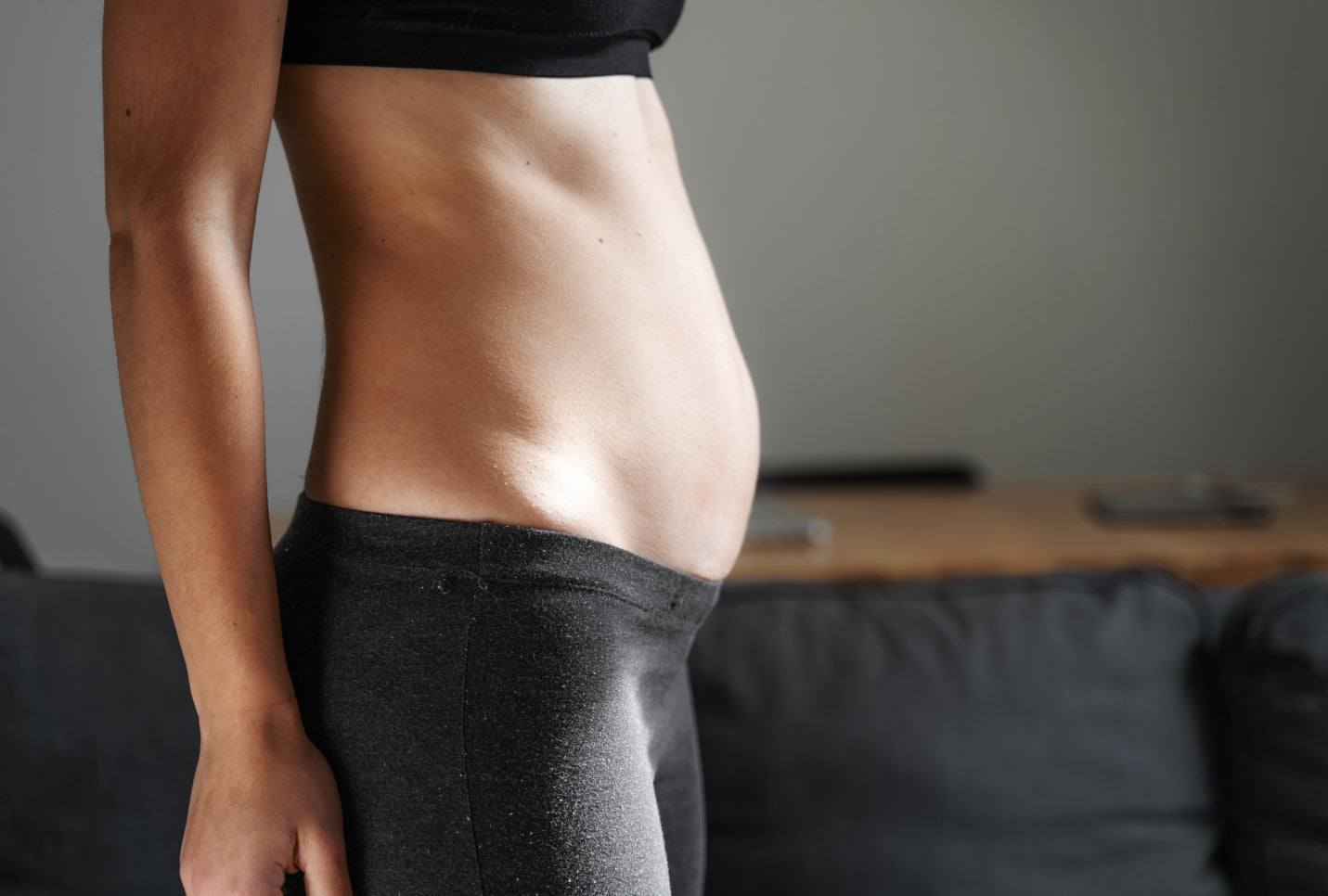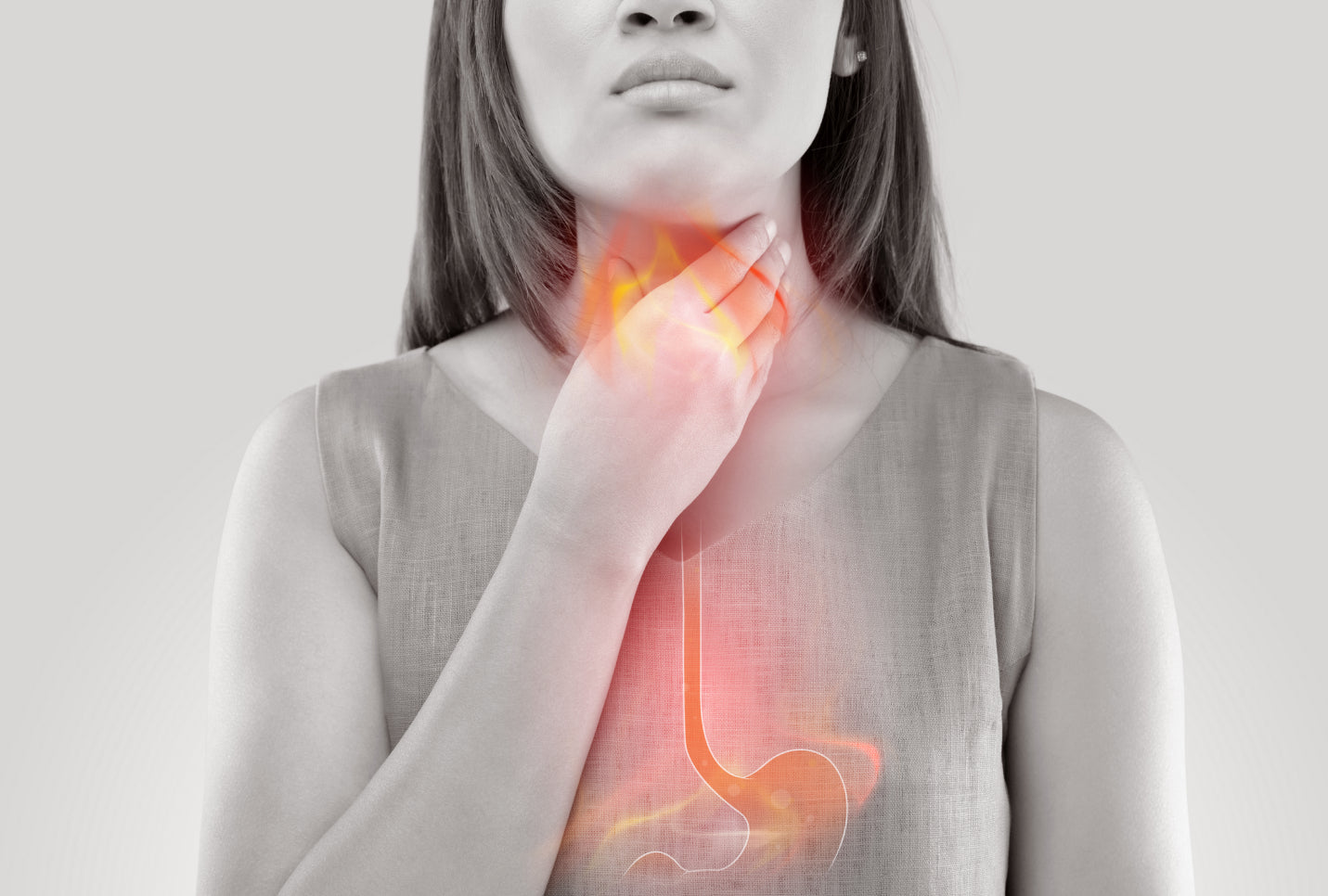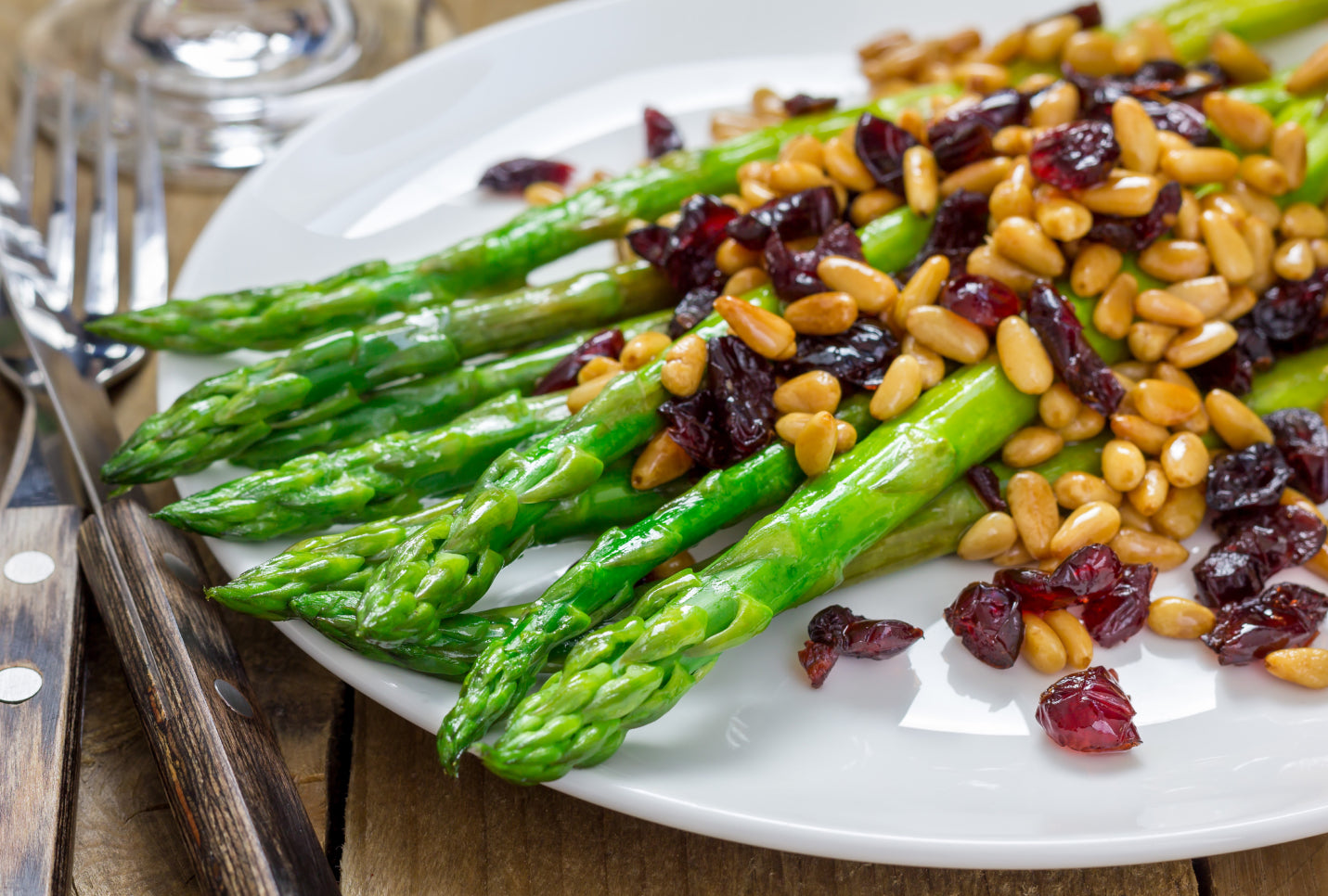
Does Alcohol Cause Bloating? What You Need To Know
When it comes to alcohol and bloating, many of us have experienced that uncomfortable sensation after a night out or a few drinks with friends. But what exactly is the relationship between alcohol, our digestive system, and bloating?
In this article, we’ll get into all the intricacies of alcohol's impact on our bodies, specifically focusing on how it affects our digestive system and contributes to bloating. By understanding the effects of alcohol on our bodily functions, you'll gain valuable insights into managing and preventing bloating.
How Does Alcohol Affect the Digestive System?
Alcohol consumption has become deeply embedded in our social culture. It’s extremely common for alcoholic beverages to accompany most celebrations and social gatherings.
If you’ve ever consumed alcohol, then you’re well aware of the various effects that it has on our digestive systems. Understanding the effects of alcohol on our bodies can shed light on the connection between alcohol consumption and bloating.
The Impact of Alcohol on the Digestive Tract
When we consume alcohol, it embarks on a fascinating journey through our digestive system.
From the moment it enters our mouth, alcohol starts to exert its influence. It can irritate the delicate lining of the mouth and throat, causing discomfort for some individuals.
As alcohol travels down the esophagus, it can relax the lower esophageal sphincter, which is responsible for preventing the backflow of stomach acid. This relaxation can result in acid reflux, leading to further discomfort and a bloated sensation.
Once alcohol reaches the stomach, it triggers the secretion of gastric acid, which aids in digestion. However, excessive alcohol consumption can irritate the stomach lining, causing inflammation and increasing the risk of gastritis and ulcers.
When these digestive disturbances occur, they can severely disrupt the normal breakdown and absorption of nutrients. It’s common to experience bloating, discomfort, and digestive distress as a result.
Is There a Link Between Alcohol and Gut Bacteria?
Our digestive system is home to a vast array of bacteria, collectively known as the gut microbiota. These microorganisms play a crucial role in maintaining our overall health and well-being. Interestingly, alcohol consumption can impact the delicate balance of gut bacteria, leading to a condition called dysbiosis.
Studies have shown that alcohol can alter the composition and diversity of gut microbiota, potentially leading to an imbalance between beneficial and harmful bacteria. This imbalance can have far-reaching consequences, affecting not only our digestion but also our immune system, mental health, and overall wellness.
While the precise mechanisms behind the relationship between alcohol and gut bacteria are still being explored, it is clear that excessive alcohol consumption can disrupt the intricate ecosystem of our gut. This disruption may contribute to digestive issues, including bloating, by compromising the optimal functioning of our digestive system.
Can Alcohol Consumption Lead to Bloating?
Now that we understand how alcohol affects the digestive system, we can address the following question: can alcohol consumption lead to bloating? The answer, unfortunately, is a resounding “yes.”
How Does Alcohol Influence Water Retention and Bloating?
Alcohol is a known diuretic, meaning that it increases urine production and can lead to dehydration. When we consume alcohol, our kidneys work overtime to eliminate the excess fluid from our bodies. This diuretic effect can disrupt our fluid balance, potentially leading to dehydration.
Dehydration, in turn, prompts our bodies to retain water, often in unusual places such as the face, hands, and feet. This fluid retention can contribute to a bloated appearance and a feeling of discomfort.
Furthermore, alcohol can also cause inflammation in the body, including the gastrointestinal tract. This inflammation can result in swelling and cause your stomach to produce more acid than usual. The combination of these symptoms can further exacerbate bloating and digestive distress.
Does the Type of Alcohol Matter?
Different types of alcohol contain varying amounts of sugars, additives, and congeners (by-products of fermentation). These components can influence the severity of bloating and discomfort experienced by some people.
For example, carbonated alcoholic beverages like beer and champagne can introduce additional gas into the digestive system, potentially leading to bloating.
Also, some people may have specific sensitivities or intolerances to certain types of alcohol, such as those high in fermentable carbohydrates like beer and cider. These individuals may experience bloating due to their body's difficulty in breaking down these substances.
What Other Digestive System Concerns Are Associated With Alcohol?
Alcohol's impact on our digestive system extends beyond bloating. Let's explore some other digestive system concerns associated with alcohol consumption.
Can Alcohol Influence Weight Gain?
Weight gain is a common concern among individuals who consume alcohol regularly. It's no secret that alcohol contains calories, and these calories can add up quickly. Unlike proteins, carbohydrates, and fats, alcohol provides empty calories devoid of nutritional value.
Alcohol is relatively high in calories, with approximately seven calories per gram. This calorie content, combined with the potential overconsumption of alcohol during social events or as a means of coping with stress, can contribute to weight gain over time.
Moreover, when we consume alcohol, our bodies prioritize metabolizing alcohol rather than other nutrients. This means that the calories from alcohol are more likely to be stored as fat, further promoting weight gain. The excess calories from alcohol can disrupt the delicate balance of energy intake and expenditure, leading to an increase in body weight and body fat accumulation.
Does Alcohol Consumption Affect Bowel Movements?
Alcohol can disrupt regular bowel movements, leading to digestive discomfort and bloating. It acts as an irritant to the gastrointestinal tract, potentially causing inflammation and altering the normal rhythm of bowel movements.
Some individuals may experience diarrhea or loose stools after consuming alcohol, while others may notice constipation or difficulty in passing stools. These changes in bowel habits can contribute to bloating and an overall feeling of digestive imbalance.
As mentioned earlier, alcohol can have a dehydrating effect on the body. When we become dehydrated, it affects the moisture content in the colon, leading to harder and more difficult-to-pass stools. This can often result in constipation which further exacerbates bloating and discomfort.
Furthermore, excessive alcohol consumption can disrupt the balance of beneficial bacteria in the gut. The gut microbiota plays a crucial role in digestive health, and imbalances in the gut flora can contribute to digestive issues such as bloating, gas, and altered bowel movements.
How Can You Mitigate the Bloating Effects of Alcohol?
While completely avoiding alcohol may be the best solution for some individuals, others may choose to make mindful choices to minimize the bloating effects. Here are some strategies to help mitigate alcohol-related bloating:
Lifestyle Changes
Be mindful of your alcohol consumption, opting for moderation rather than excessive intake. Set limits for yourself and pace your drinking to avoid overindulgence. Enjoy the experience of sipping your drink and savor each moment rather than rapidly consuming it.
Alcohol can also contribute to dehydration, exacerbating bloating. To counteract this, drink plenty of water or hydrating beverages throughout the day and while consuming alcohol. This helps maintain optimal hydration levels and supports healthy digestion.
Finally, engage in regular physical activity to promote healthy digestion and maintain a balanced weight. Exercise can help stimulate bowel movements and alleviate bloating. Incorporate activities that you enjoy, such as walking, cycling, or dancing, into your routine to keep your body active and your digestive system functioning optimally.
Supplements
Consider incorporating probiotic supplements into your routine. Probiotics are beneficial bacteria that support a healthy gut microbiota, aiding in digestion and reducing bloating. Consult with a healthcare provider or nutritionist to determine the right probiotic strain and dosage for your specific needs.
Focus on a well-rounded diet that includes fiber-rich foods, such as fruits, vegetables, whole grains, and legumes. These foods promote regular bowel movements and help prevent constipation. Additionally, include sources of lean proteins and healthy fats in your meals to support overall digestive health.
How Can I Consume Alcohol in a Healthy Way?
If you choose to consume alcohol, doing so in a healthy and responsible manner is essential. Here are some tips to help you enjoy alcohol while prioritizing your well-being.
First, establish personal guidelines for alcohol consumption, keeping in mind the recommended limits and the potential effects on your health. Listen to your body and be mindful of how alcohol makes you feel. Pay attention to the signals of satisfaction and know when it's time to stop consuming alcohol.
Second, consult a healthcare provider or nutritionist who can provide personalized advice on alcohol consumption based on your specific health needs. They can help you navigate the potential risks and offer strategies for moderation. They will take into account any pre-existing conditions or medications that may interact with alcohol.
Lastly, explore non-alcoholic alternatives or mocktails that allow you to participate in social events without consuming alcohol. These options can still be enjoyable while reducing the negative effects of alcohol on your health. Experiment with different flavors, ingredients, and combinations to discover new and exciting alcohol-free beverages.
Alleviating Bloating: The Key Takeaways
Understanding the relationship between alcohol and bloating is crucial for maintaining digestive health and overall well-being. It should be clear that excessive alcohol consumption can often lead to bloating, weight gain, and disruptions in bowel movements. However, there are strategies you can adopt to mitigate the bloating effects and consume alcohol in a healthy way.
Mindful drinking, staying hydrated, and getting regular exercise are a few lifestyle changes that can help reduce the symptoms of bloating. Additionally, taking supplements like probiotics and following a well-diet can support a healthy gut microbiota and aid digestion, further reducing bloating.
In your journey to alleviate bloating, you may also consider using Dr. Kellyann's bone broth. This natural option can help support your gut and potentially soothe digestive discomfort while providing a host of additional benefits. Adding Dr. Kellyann’s bone broth to the list of tips above can be an excellent start to help you take back your digestive health.
Sources:
Social and Cultural Contexts of Alcohol Use | PMC
Alcohol and Its Journey Through Your Body | NHSGGC
Introduction To the Human Gut Microbiota | PMC
Diuretics: Types, Uses and Side Effects | Cleveland Clinic







